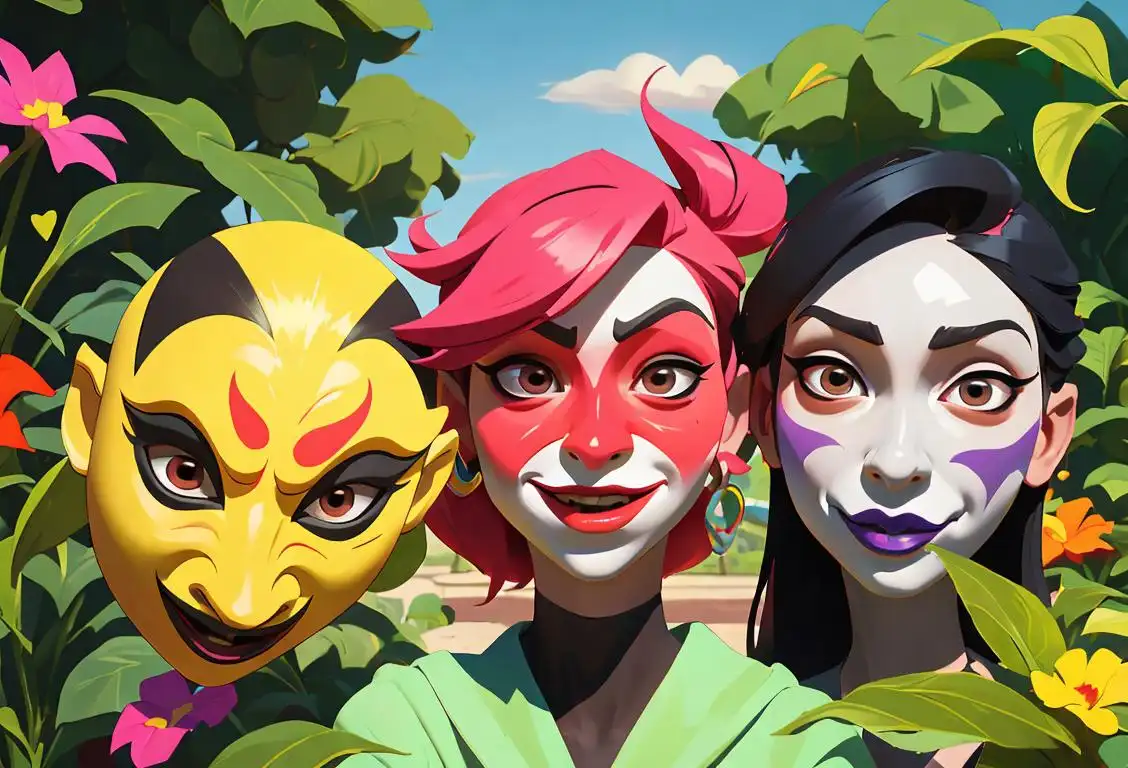National Curvy Day

Welcome to the wonderful world of National Curvy Day! This is a day to celebrate all the beautiful curvy individuals out there who are rocking their fabulous curves with confidence. So get ready to embrace those curves and join in the festivities!
When is Curvy Day?
It's national curvy day on the 18th July.
The Origin of National Curvy Day
Did you know that National Curvy Day has its roots in the body positivity movement? It was created to challenge the conventional beauty standards and promote self-love and acceptance for people of all sizes.
In recent years, social media has played a significant role in promoting body positivity and empowering those who may have been previously marginalized or body-shamed. National Curvy Day is a way to stand up against body discrimination and celebrate diversity in all its glorious forms.
How to Celebrate National Curvy Day
There are so many fun and fabulous ways to celebrate National Curvy Day. Here are a few ideas to get you started:
- Host a body-positive fashion show featuring curvy models rocking the latest trends.
- Organize a curvy workout class, because fitness is for every body.
- Throw a curvy-themed party and invite all your loved ones to join in the celebration.
Remember, the most important thing is to embrace and love your own beautiful curves, whether you're curvier than a winding road in the countryside or just have a few lovely lady lumps.
Did You Know?
Did you know that studies have shown that curvy individuals tend to have higher self-confidence and body satisfaction compared to those who fit the traditional beauty standards? So let those curves shine and flaunt what your mama gave you!
History behind the term 'Curvy'
1900
The emergence of the term 'curvy'
The term 'curvy' finds its origins in the early 20th century. It was initially used to describe women with a fuller figure, particularly those with well-rounded hips, thighs, and breasts. This term quickly gained popularity, becoming synonymous with a body shape that celebrated voluptuousness and sensuality, in contrast to the previously favored 'slim' or 'boyish' figures.
1930
Film and fashion embrace curves
During the 1930s, the film industry played a significant role in popularizing the body shape associated with the term 'curvy.' Actresses such as Mae West and Jean Harlow, who had more prominent curves, became icons and symbolized the beauty ideals of the era. Moreover, fashion trends started emphasizing the feminine hourglass shape, showcasing clothing that accentuated curves.
1960
A shift towards slimmer ideals
As the 1960s arrived, a shift in beauty standards occurred. The fashion industry began favoring a slimmer, more androgynous figure, popularized by models like Twiggy. With this transition, the term 'curvy' took a backseat, as the ideal body shape became leaner and less curvaceous. This period marked a temporary setback for celebrating curvier body types.
1990
Revival of the curvy ideal
The 1990s witnessed a reclamation of the term 'curvy' in popular culture. Icons like Jennifer Lopez and Kate Winslet brought the focus back to embracing curvier body types. This revival emphasized body positivity and pushed back against the unrealistic beauty standards propagated by the media. The term 'curvy' now signifies a celebration of diverse body shapes and acceptance of natural curves.
Present
Continued empowerment and inclusivity
In the present day, the term 'curvy' continues to evolve beyond physical appearance. It has become an empowering and inclusive term that encompasses various body shapes and sizes. Organizations, influencers, and body positivity movements use 'curvy' to promote self-acceptance, advocate for diverse beauty standards, and celebrate the beauty of all body types.
Did you know?
Did you know that studies have shown that curvy individuals tend to have higher self-confidence and body satisfaction compared to those who fit the traditional beauty standards?Tagged
awareness fun loved ones self-acceptanceFirst identified
18th July 2015Most mentioned on
18th July 2015Total mentions
64Other days
Masks Off Day
Cheese Pizza Day
Suicide Prevention Day
Medal Of Honor Day
Guac Day
Foundation Day
Pumpkin Day
Memorial Day
Cancer Survivors Day
Compliment Day









